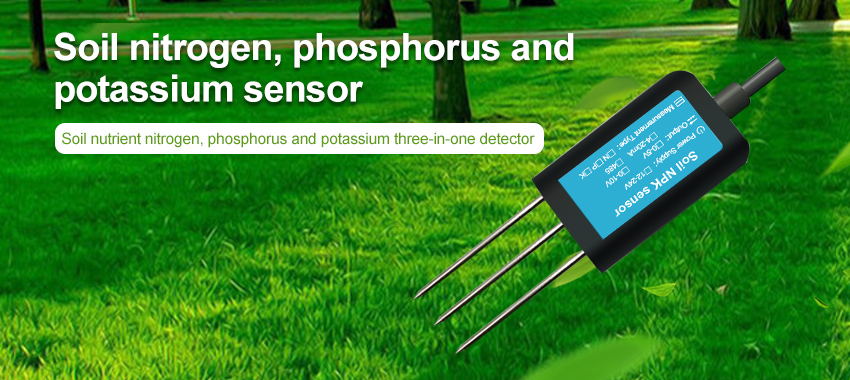Soil sensors are essential tools for monitoring and managing soil conditions in various applications, including agriculture, environmental science, and landscaping. They provide valuable information about soil moisture, temperature, and nutrient levels, helping optimize irrigation schedules, fertilization plans, and overall plant health. However, selecting the right soil sensor can be a daunting task, considering the wide range of options available in the market. This article aims to guide you through seven key points to consider when choosing the right soil sensor for your specific needs.

Measurement Parameters:
The first crucial point to consider is the measurement parameters required for your application. Determine which soil properties you need to monitor, such as soil moisture, temperature, electrical conductivity (EC), or pH levels. Some sensors specialize in one specific parameter, while others offer multiple measurements. It’s important to select a sensor that aligns with your monitoring goals.
Accuracy and Precision:
Accuracy and precision are vital considerations when selecting a soil sensor. Look for sensors that provide reliable and precise measurements, ensuring that the data collected is accurate and consistent. Check the sensor’s specifications for accuracy ratings and calibration processes. Additionally, consider the sensor’s resolution, which determines its ability to detect small changes in soil properties.
Installation and Ease of Use:
Consider the ease of installation and use of the soil sensor. Some sensors require complex installation procedures, while others are designed for simple plug-and-play setups. Assess whether the sensor requires specialized tools or technical expertise for installation. Additionally, check if the sensor integrates seamlessly with existing monitoring systems or software platforms.
Sensor Durability and Longevity:
Soil sensors are exposed to harsh environmental conditions, including moisture, UV radiation, and temperature extremes. Therefore, it’s crucial to choose a sensor that is durable and can withstand these conditions over an extended period. Look for sensors made from robust materials and have a high IP (Ingress Protection) rating, indicating their resistance to dust and water ingress.
Connectivity and Data Management:
Consider how the sensor communicates and transfers data. Some soil sensors offer wireless connectivity options, such as Wi-Fi or Bluetooth, allowing data to be easily accessed remotely. Others may require wired connections or manual data download. Additionally, evaluate the compatibility of the sensor with data management systems or software platforms for efficient data analysis and decision-making.
Cost and Budget:
Cost is an important factor when choosing a soil sensor. Evaluate the price range of different sensors available in the market and align it with your budget. However, it’s crucial to strike a balance between cost and quality. Cheaper options may compromise on accuracy, durability, or ease of use, leading to inaccurate or unreliable data.
Support and Technical Assistance:
Lastly, consider the level of support and technical assistance provided by the sensor manufacturer or supplier. Check if they offer comprehensive documentation, user manuals, and troubleshooting guides. Additionally, assess the availability of customer support channels, such as email, phone, or online chat, in case you encounter any issues or have questions regarding the sensor.

Conclusion:
Selecting the right soil sensor is crucial for accurate and reliable soil monitoring. By considering the measurement parameters, accuracy, installation process, durability, connectivity, cost, and support, you can make an informed decision that aligns with your specific needs and budget. Remember to prioritize the key factors that are most important for your application and seek recommendations from experts or peers in the field. A well-chosen soil sensor will enhance your ability to optimize irrigation, fertilization, and overall soil management practices, leading to improved plant health and productivity.
